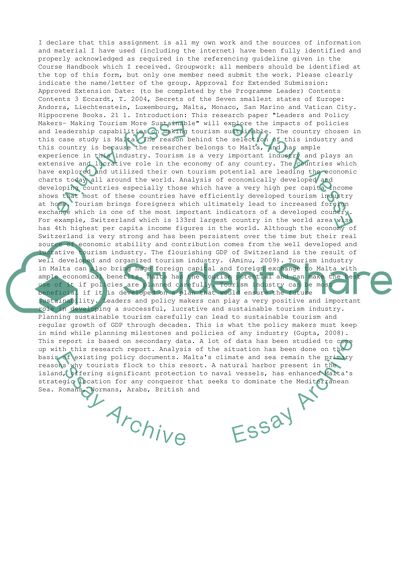Cite this document
(“Leaders and policy makers - making tourism more sustainable Research Paper”, n.d.)
Leaders and policy makers - making tourism more sustainable Research Paper. Retrieved from https://studentshare.org/business/1433221-leaders-and-policy-makers-making-tourism-more-sustainable
Leaders and policy makers - making tourism more sustainable Research Paper. Retrieved from https://studentshare.org/business/1433221-leaders-and-policy-makers-making-tourism-more-sustainable
(Leaders and Policy Makers - Making Tourism More Sustainable Research Paper)
Leaders and Policy Makers - Making Tourism More Sustainable Research Paper. https://studentshare.org/business/1433221-leaders-and-policy-makers-making-tourism-more-sustainable.
Leaders and Policy Makers - Making Tourism More Sustainable Research Paper. https://studentshare.org/business/1433221-leaders-and-policy-makers-making-tourism-more-sustainable.
“Leaders and Policy Makers - Making Tourism More Sustainable Research Paper”, n.d. https://studentshare.org/business/1433221-leaders-and-policy-makers-making-tourism-more-sustainable.


